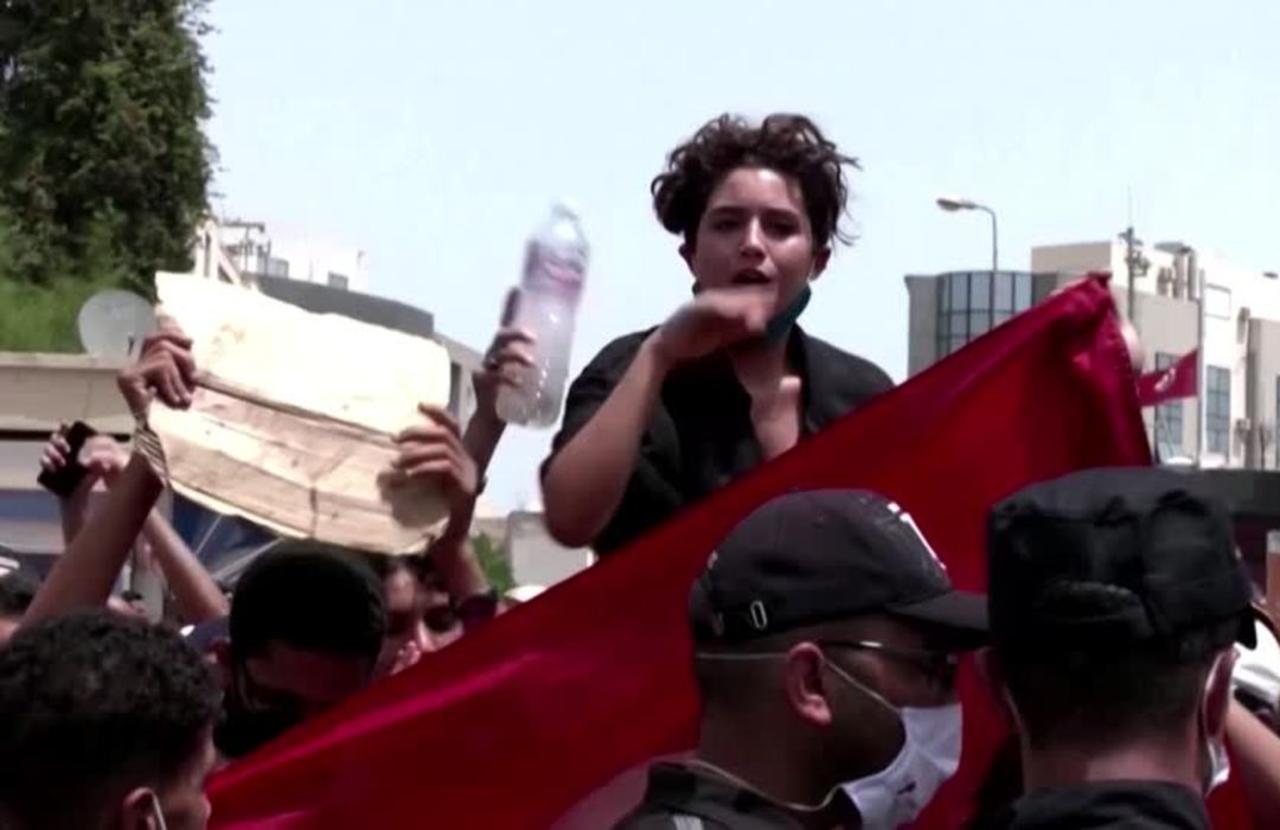
Women took a prominent role in the latest bout of Tunisian protests on July 25, reflecting the country's reputation as a leader on women's rights.
Lucy Fielder reports.

Women took a prominent role in the latest bout of Tunisian protests on July 25, reflecting the country's reputation as a leader on women's rights.
Lucy Fielder reports.
Fatma Jgham helpedorganize the wave of protests across Tunisian cities on July 25.
A burst of common fury over years of economic stagnation and political dysfunction, sharpened by the health crisis.
Later that day, President Kais Saied dismissed the prime minister and froze parliament.
Sitting on her rooftop in Tunis, the activist and art teacher said she and her comrades backed the move, which critics decried as a coup.
But they'll keep the pressure up if his next steps don't answer their demands.
"We are the ones who gave you legitimacy, Kais, notwithstanding Article 80 or any other article of the constitution that you relied on to make decisions.
Now there is another moment.
What can we offer these people to get out of this crisis?
There is a lot of anticipation - we must hold a referendum on the constitution and there must be no turning back.
Not by you or anyone else." Female activists like Jgham have played a prominent role throughout, reflecting Tunisia's reputation as a leader among Arab states on women's rights.
Emna Sahli, who also took part in the protests, says women have moved to the foreground.
"I can say today that the role of women on the Tunisian streets is no longer being led by men or by a leadership, but we are more in a kind of a balance that is very constructive - today females are carrying the ideas and this is really great." Saied's seizure of power proved mostly popular, with thousands of people crowding the streets immediately afterwards to celebrate.
But he has not outlined how he plans to handle the crisis or Tunisia's future.
The protests weren't large, but they also involved several attacks on offices of a major political party - the moderate Islamist Ennahda.
Some Ennahda officials have questioned whether they were planned by Saied supporters as a pretext for his sudden intervention.
Jgham denies this.
"Those on the streets weren't moved by anything but oppression," she says.
Ennahda has taken part in successive coalition governments since the 2011 revolution that brought in democracy.
But many Tunisians now blame it for their economic woes.